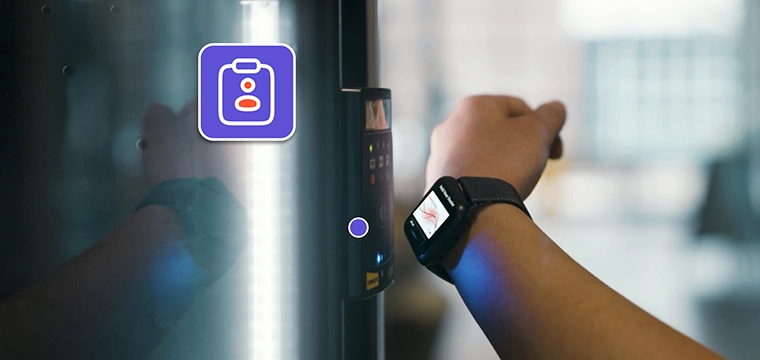
Last year posed a number of unforeseen challenges for universities across the country, as COVID-19 required campuses to pivot and problem solve in new ways. One bit of problem solving at Duke University saw the implementation of a COVID symptom monitoring process that deactivated student ID card access with the university’s Transact system if students did not complete daily symptom monitoring and surveillance testing.
The system has since been scaled back in keeping with the changes from 2020 to present day, but Duke’s initiative is nevertheless an interesting use case for the campus card transaction system. The student symptom screening was done on an app called SymMon that was designed to ensure that students on campus stayed current with symptom monitoring each day prior to their arrival to campus.
In addition to SymMon, all student records were deactivated in Transact at the start of each academic semester and only re-activated after the student took a COVID test at one of the testing facilities on Duke’s campus.
For students, the symptom monitoring process primarily took place in the mobile app, but there were other options to complete the check via the website or over the phone, if needed,” says Debbie DeYulia, Director, DukeCard Services. “Start to finish, the process took about 15 seconds.”
If the symptom monitoring was not submitted by the daily 2:00 p.m. deadline, the student's DukeCard access was deactivated until the symptom screening was completed. Deactivation in the Transact system denied card access to campus academic buildings or dormitories, as well as food purchases and use of student meal plans. Once the health check was submitted, the DukeCard was reactivated.
The symptom check protocols were slightly different for Duke faculty and staff. “If a student missed the 2:00 p.m. deadline, they just had to complete the symptom check to have their DukeCard privileges reactivated,” explains DeYulia. “Faculty and staff had their DukeCard deactivated at midnight each night and once they did their daily SymMon check for the day, their card was then reactivated.”
Transact's card and mobile credential-based transaction system was key to enabling the rapid deployment of Duke's pandemic initiative.
“The mobile credential platform (and the entire NFC-based transaction system) allows clients to expand its functionality to meet their specific requirements,” says Erica Bass vice president of product management.
“We deliver ease of use for students and campus administrators who can easily activate or pause activations with the click of a button, and we have been pleased to see it support student health monitoring and safety during the pandemic, as well,” adds Bass. “This technology is the future: more than 50 million transactions have been processed through it since its launch just three years ago.”
When the full system was still in place, students received a daily reminder informing them that they were not compliant and needed to complete the symptom check. If they had still not completed symptom monitoring by 2:00 p.m. they received another notification informing them that their DukeCard had been deactivated.
On the back end, DukeCard personnel setup a web service that allowed SymMon to make “activate” or “deactivate” requests to the Transact system, as appropriate, while making sure that all of the rules for each protocol item were respected, explains DeYulia.
“Duke took data from SymMon and passed it to a tool that the DukeCard team created and added a student or faculty member to a group that either activated their DukeCard, or kept them from being deactivated based on the information entered.”
“Duke took data from SymMon and passed it to a tool that the DukeCard team created,” says DeYulia. “The tool added a student or faculty member to a group that either activated their DukeCard – if they were previously not active – or kept them from being deactivated based on the information entered in SymMon.”
In mid August this year before school started, if a student, faculty or staff was vaccinated, they no longer needed to complete the daily symptom tracking.
Surveillance testing is a separate component to symptom monitoring but is also recorded in the SymMon app. The feature is still in use today. Students who are called for surveillance testing must comply regardless of their vaccination status.
“If the person scans and records their surveillance test, then their DukeCard remains active,” says DeYulia.
The SymMon app gave students a convenient, single interface for handling all COVID protocol requirements. This included initial testing, surveillance testing, and symptom monitoring.
Ultimately, using the campus card credential to enforce COVID measures marked an interesting use case for the campus credential. Duke’s initial use of SymMon, its campus transaction system and student ID card privileges in 2020 has helped the university adapt and hone the application to address evolving COVID challenges.




